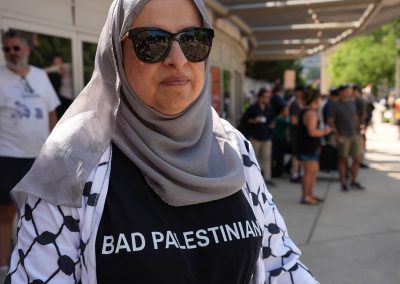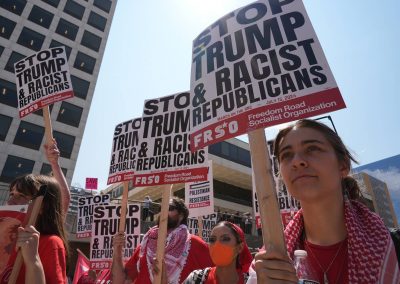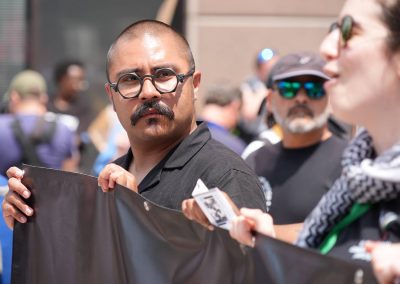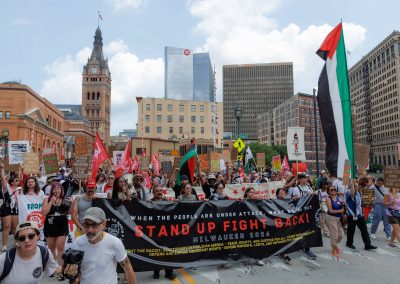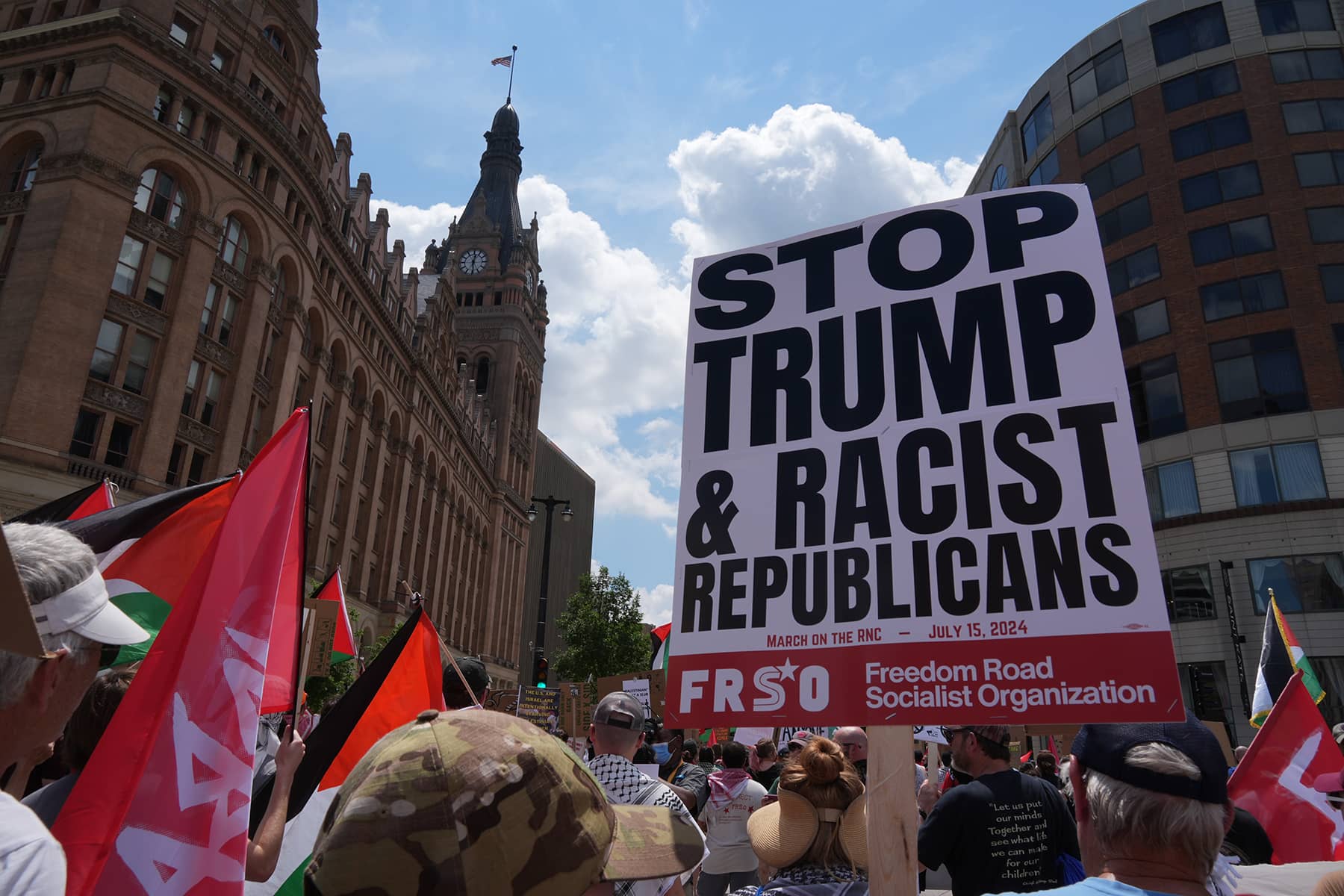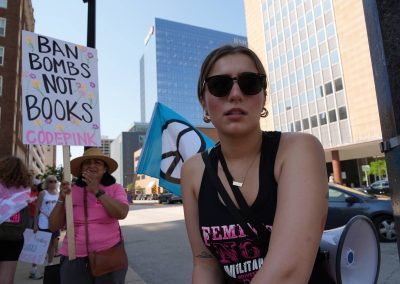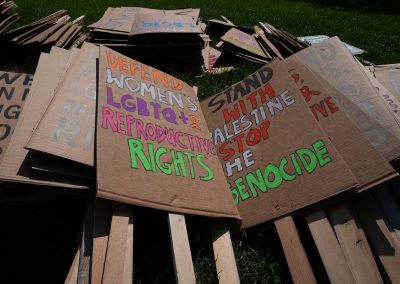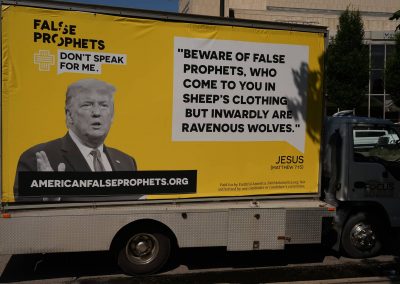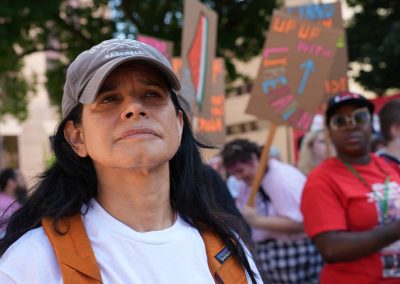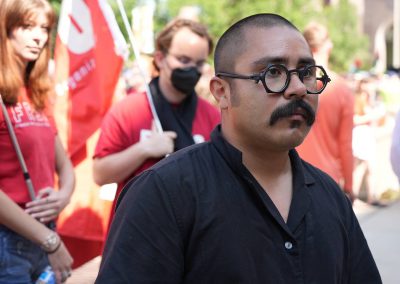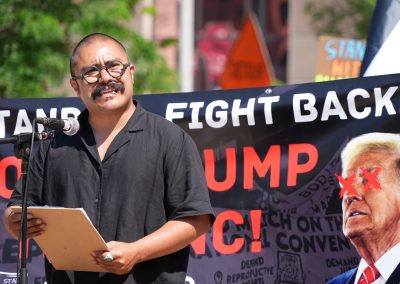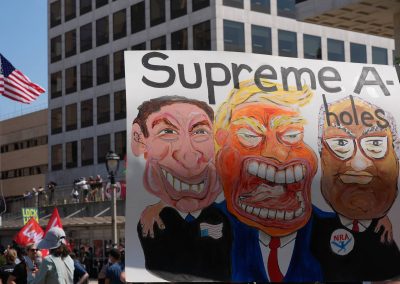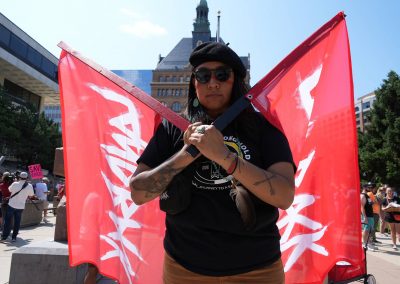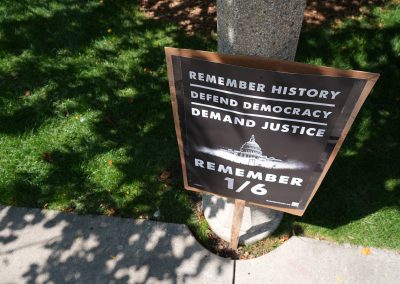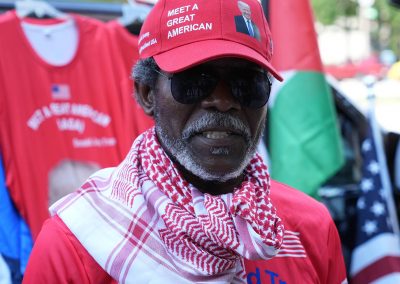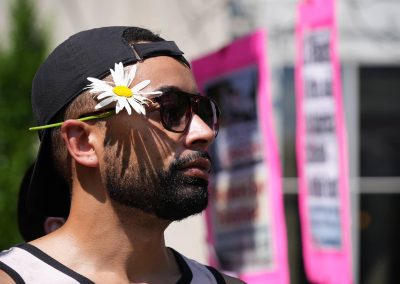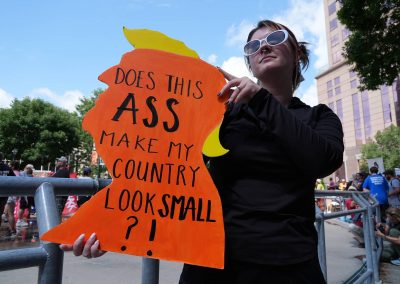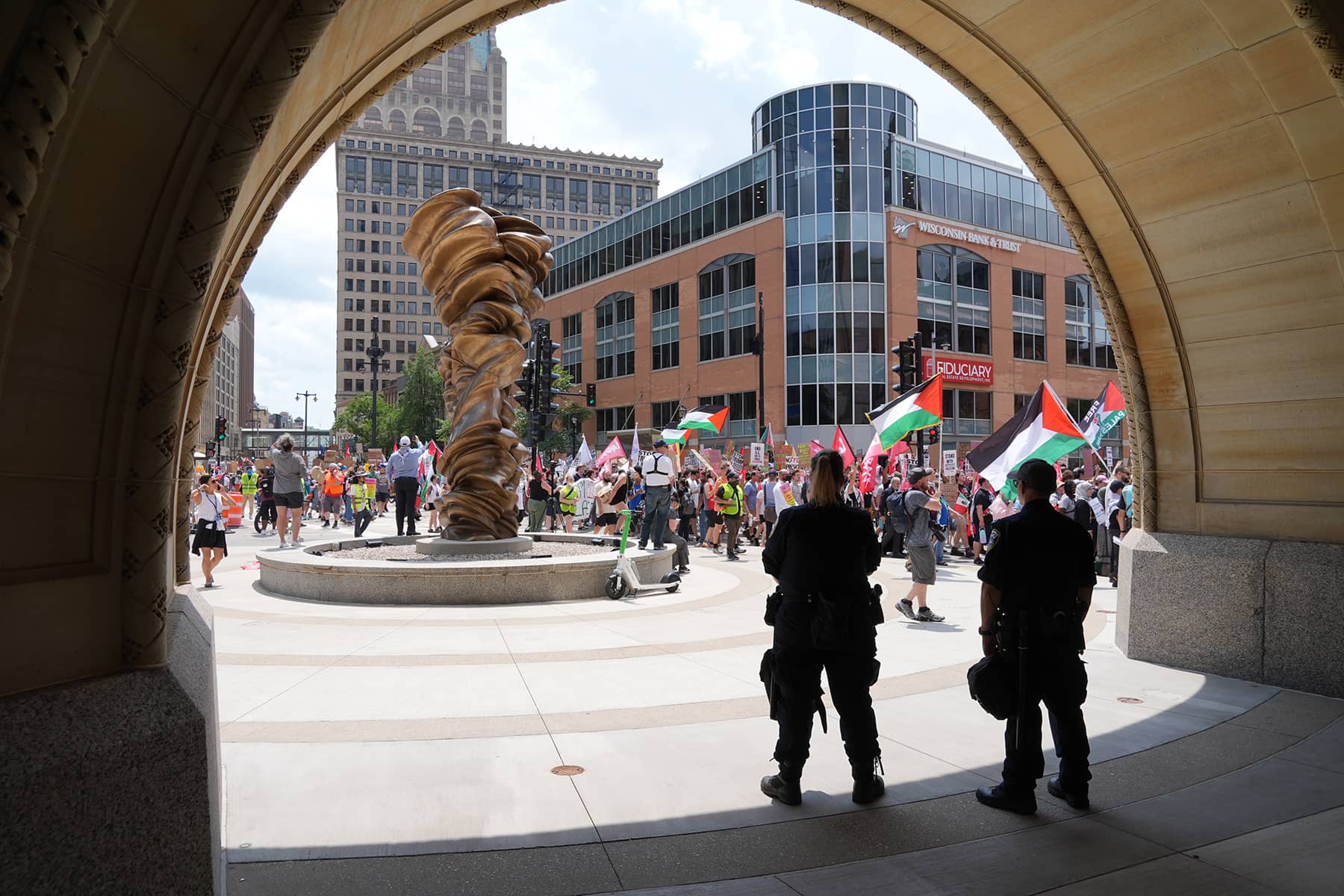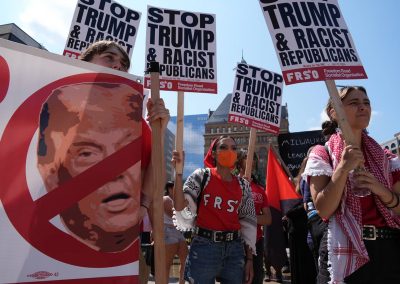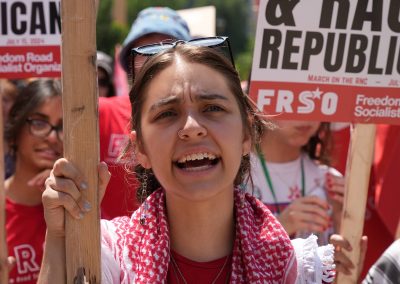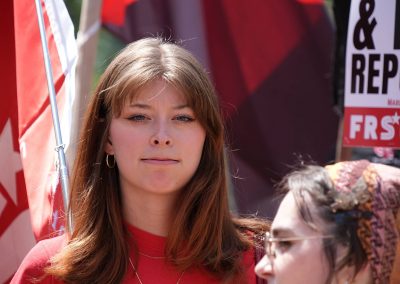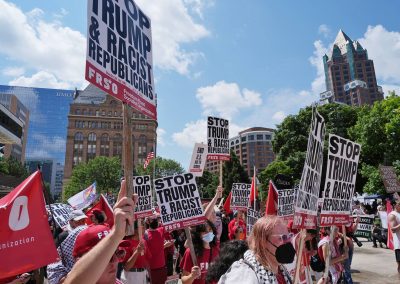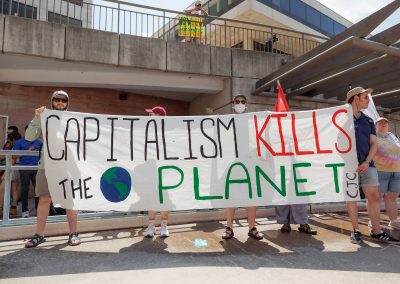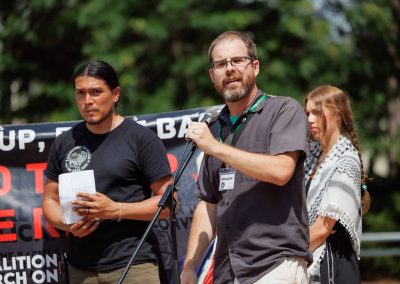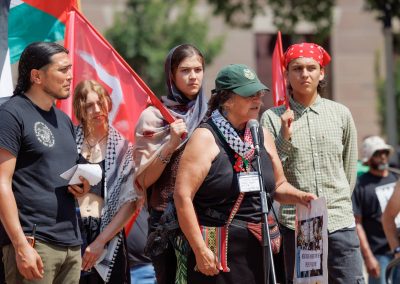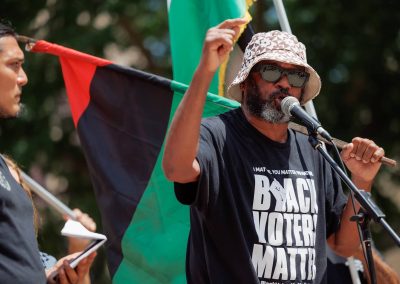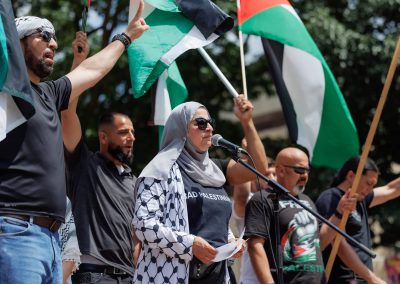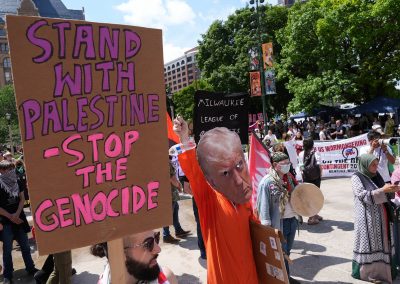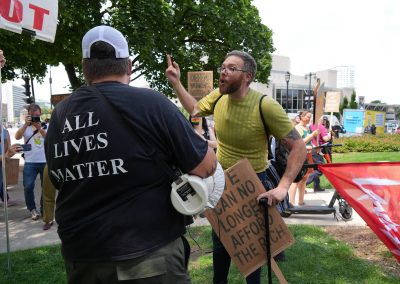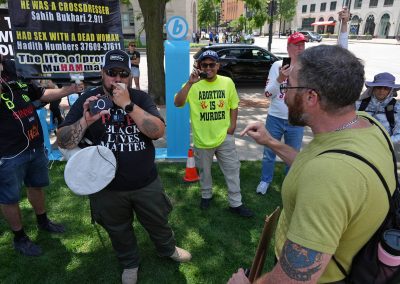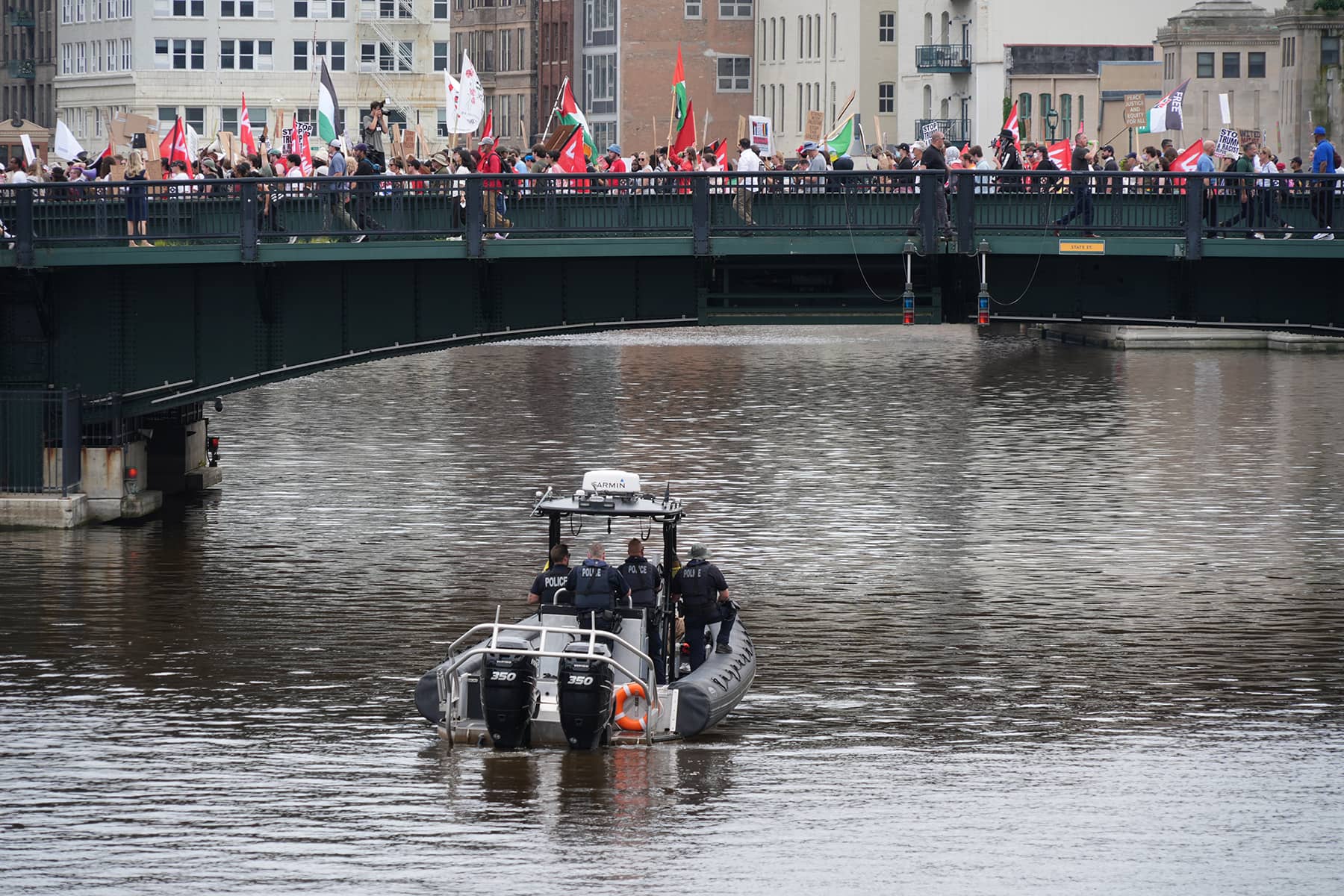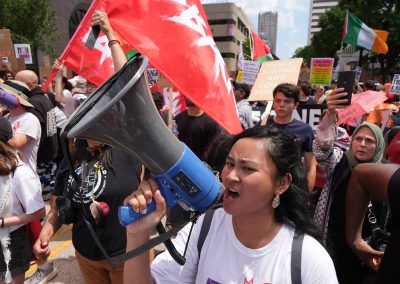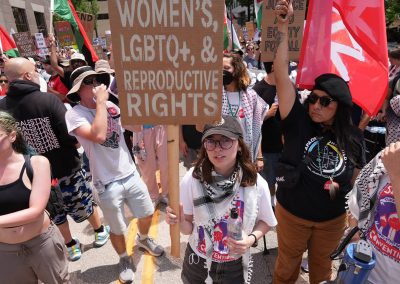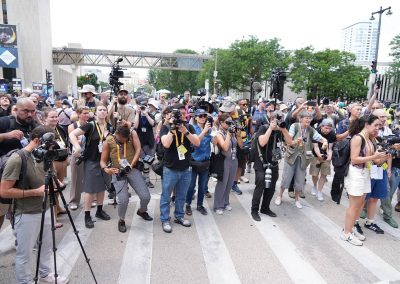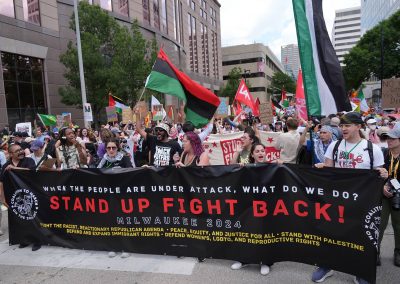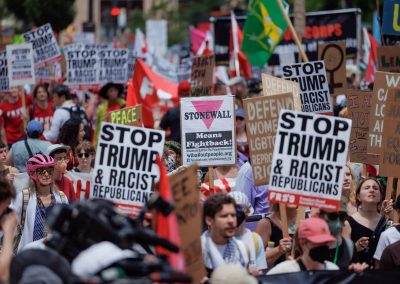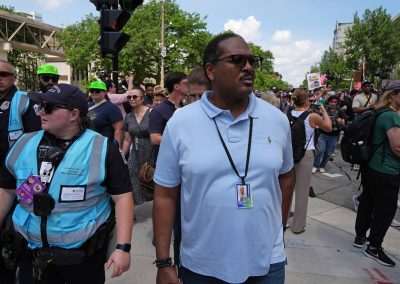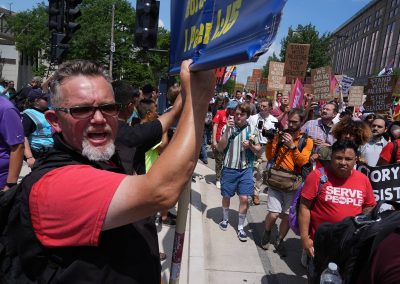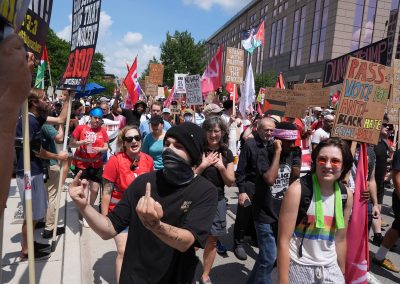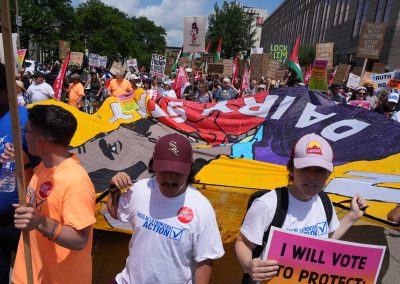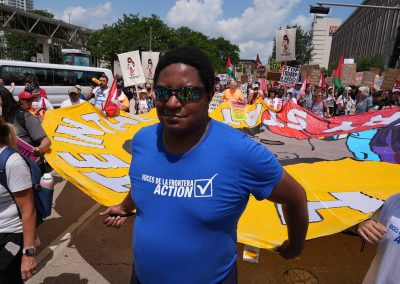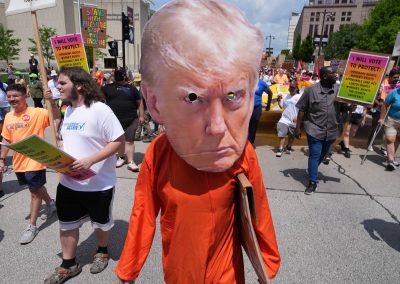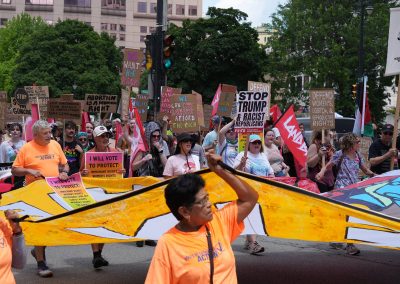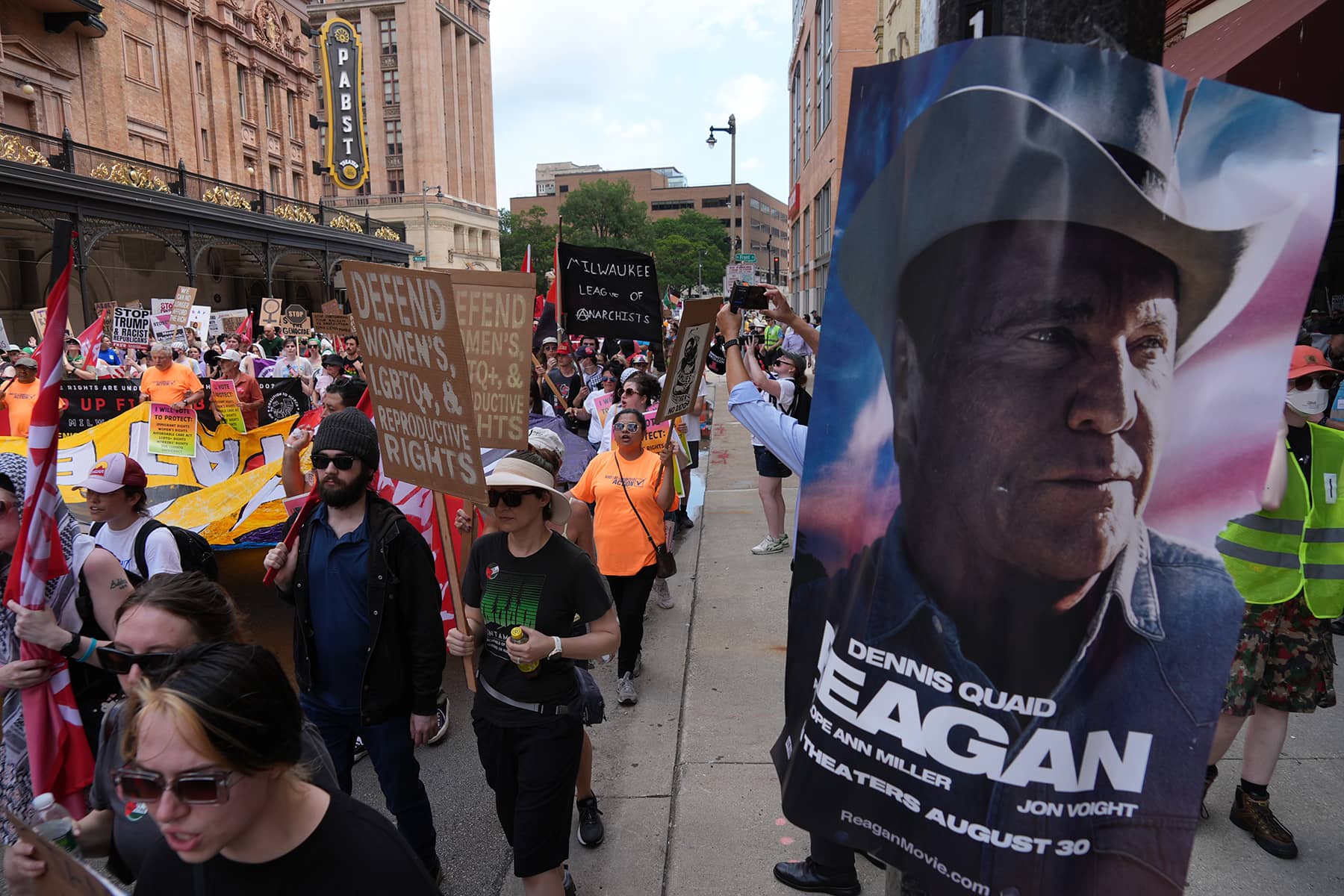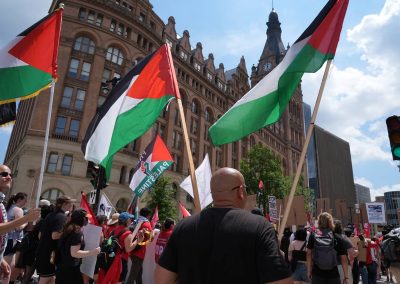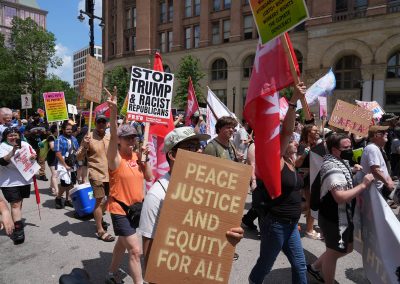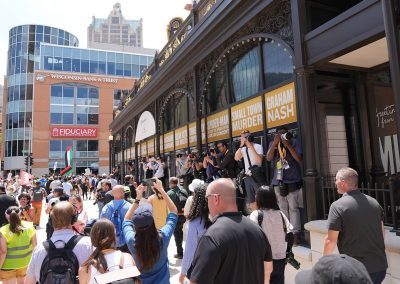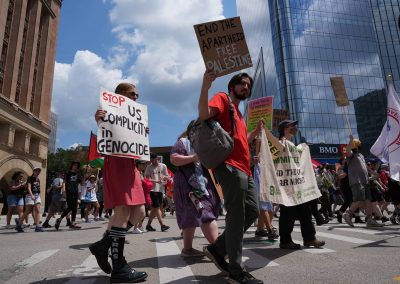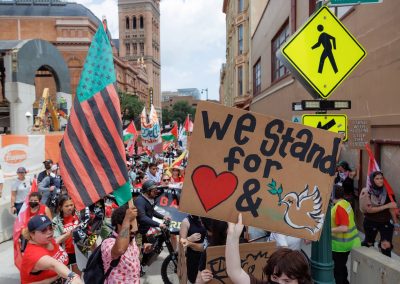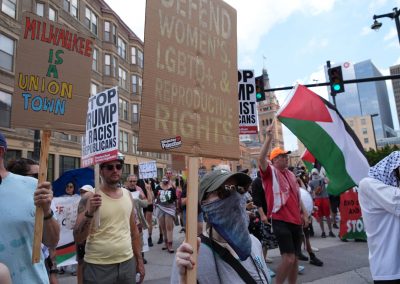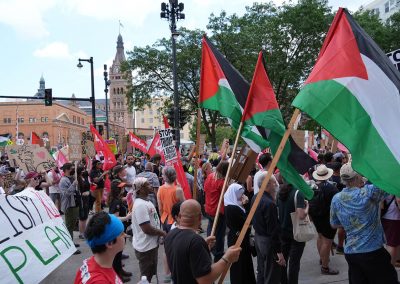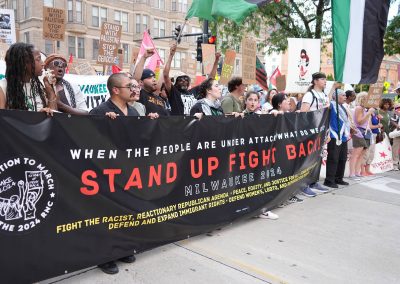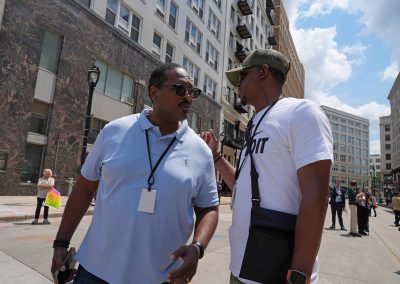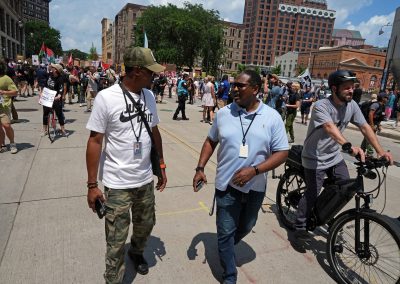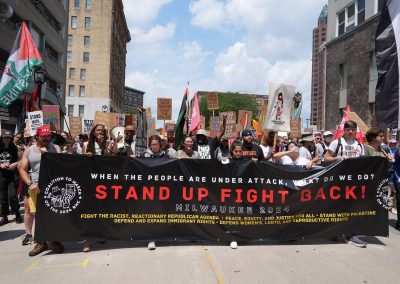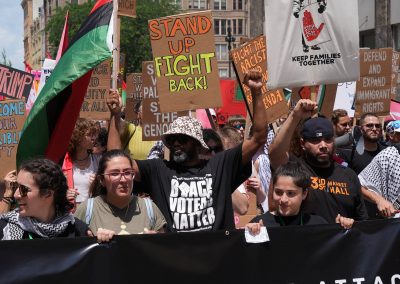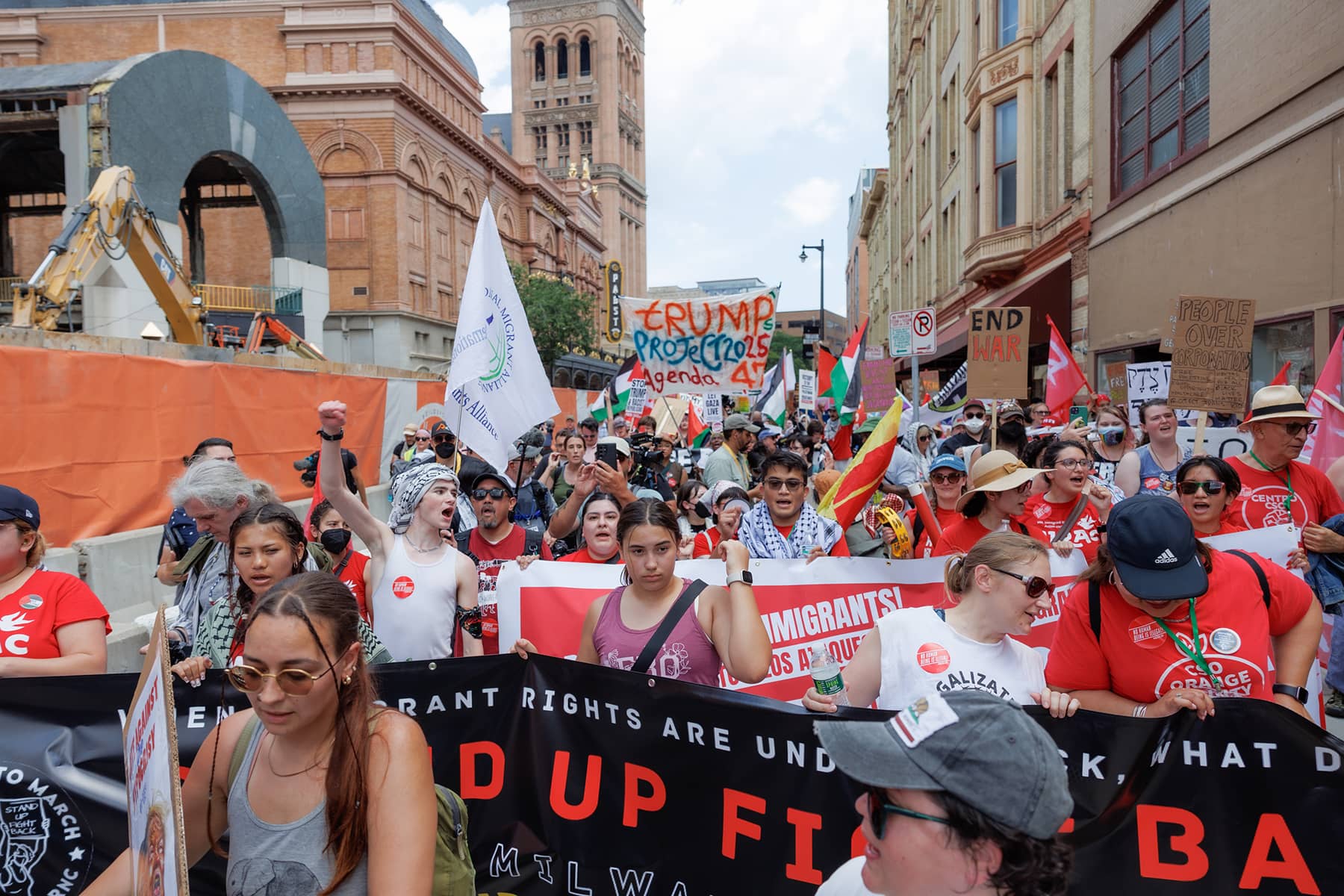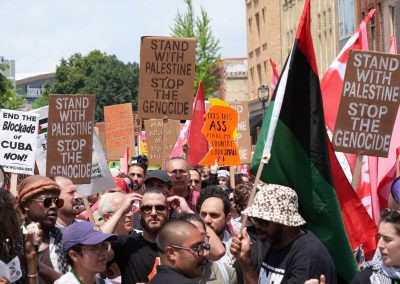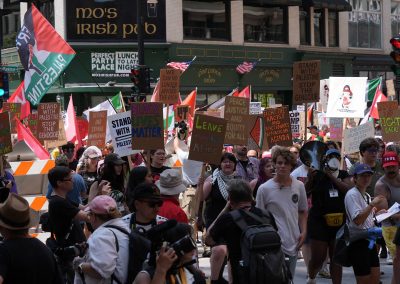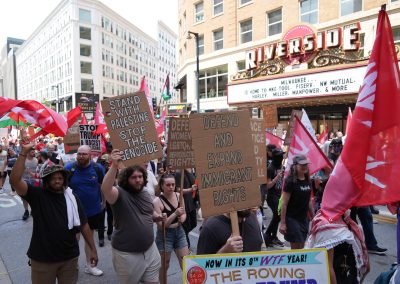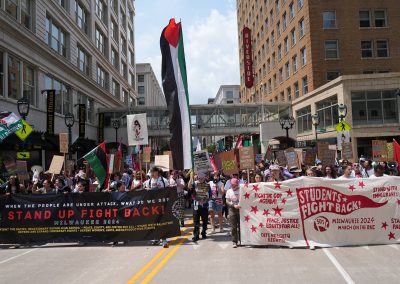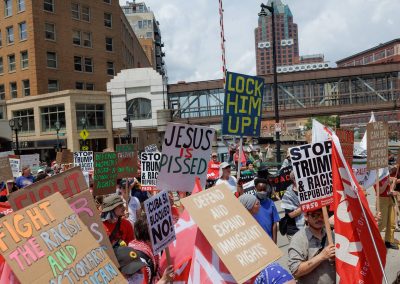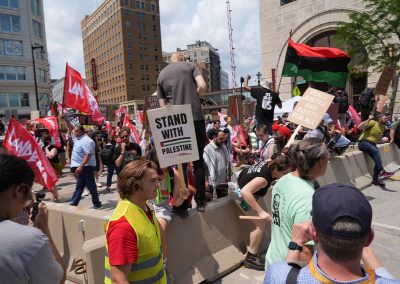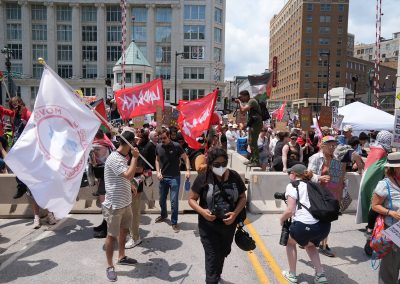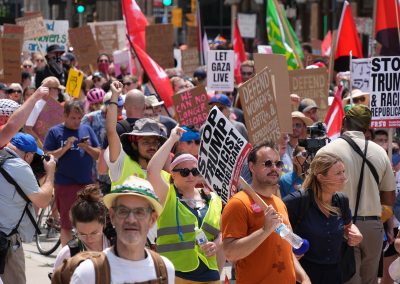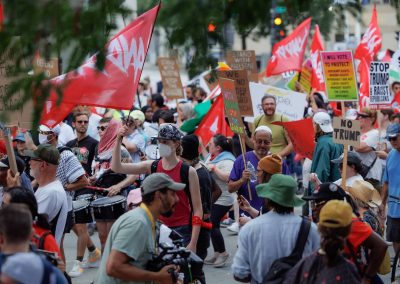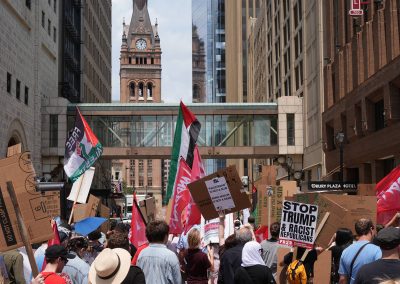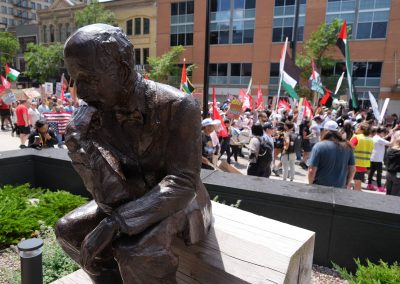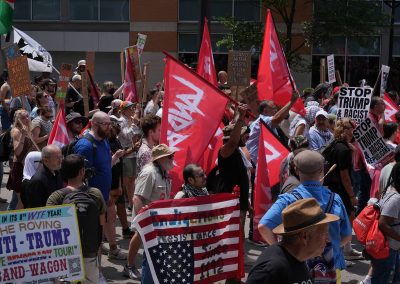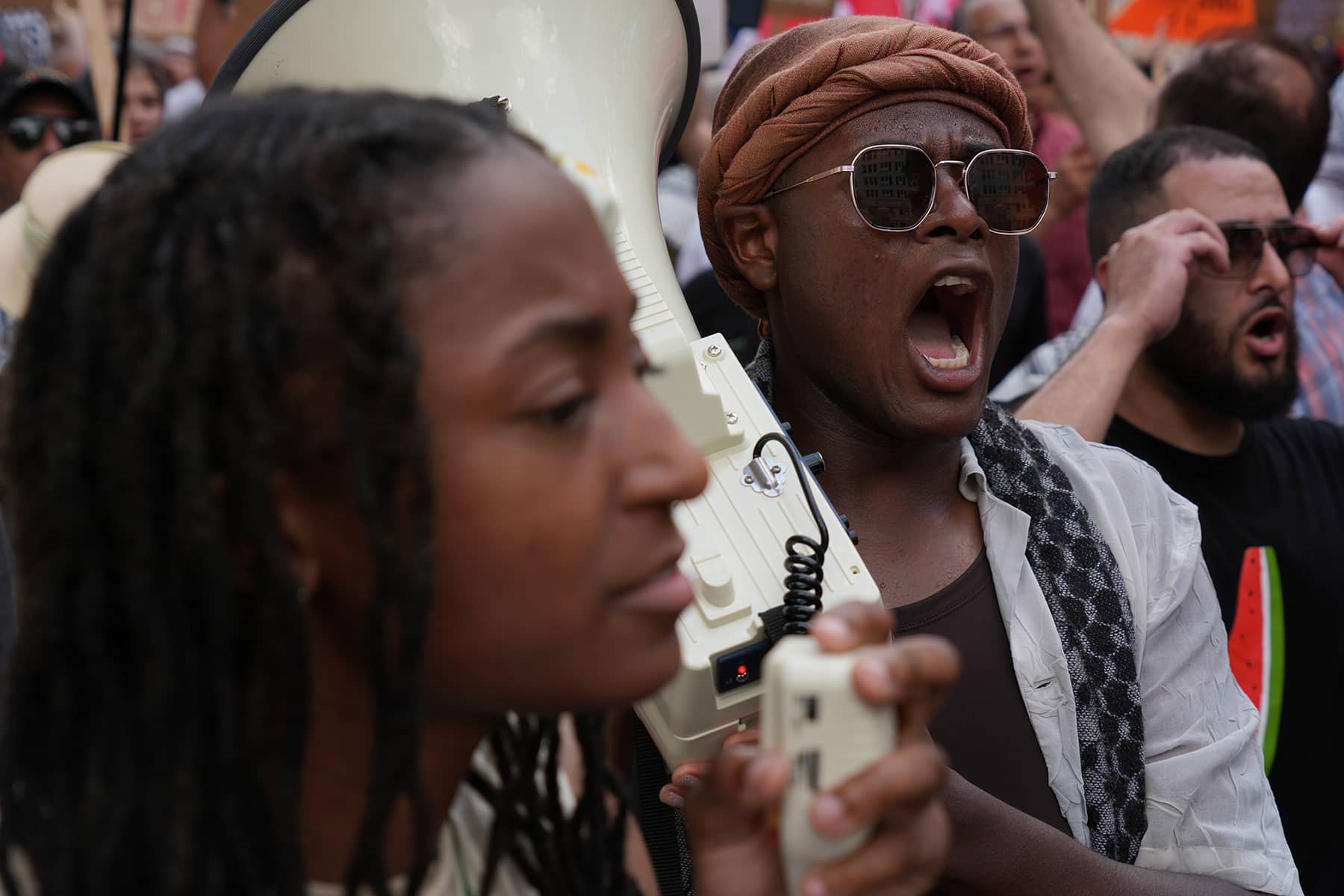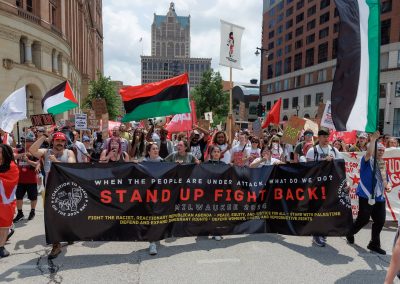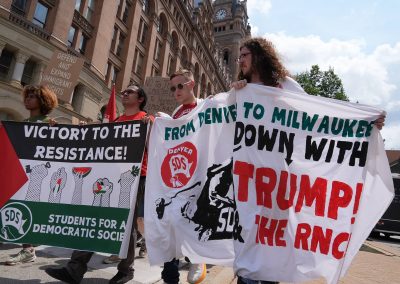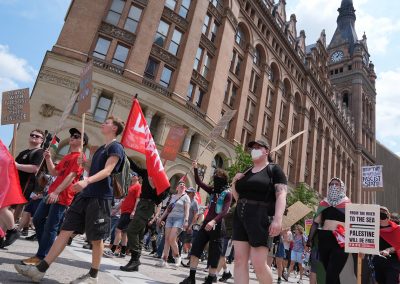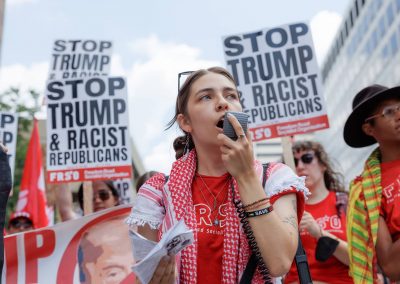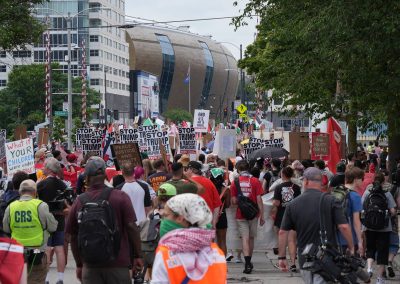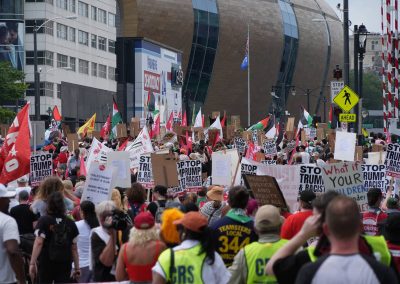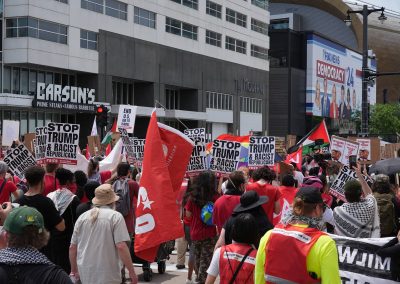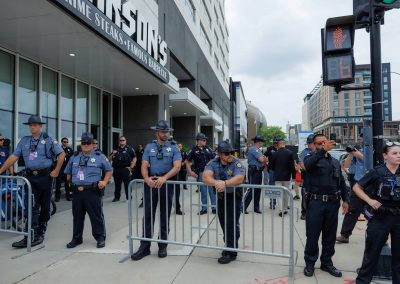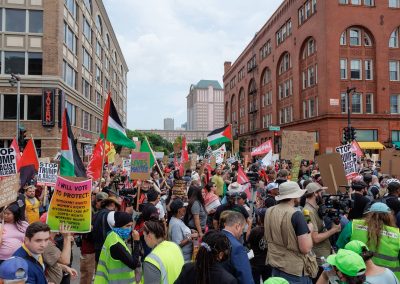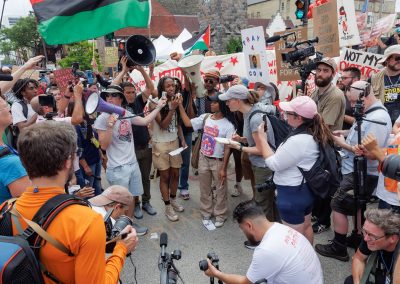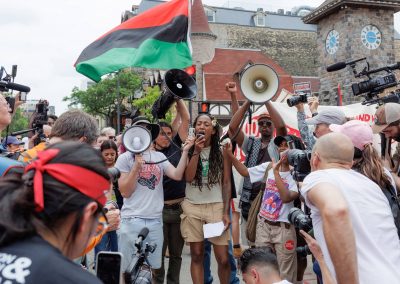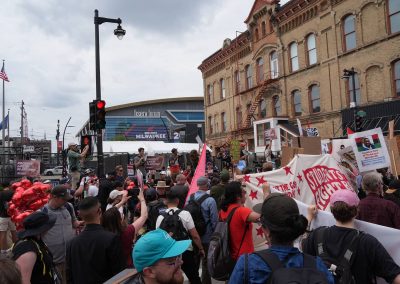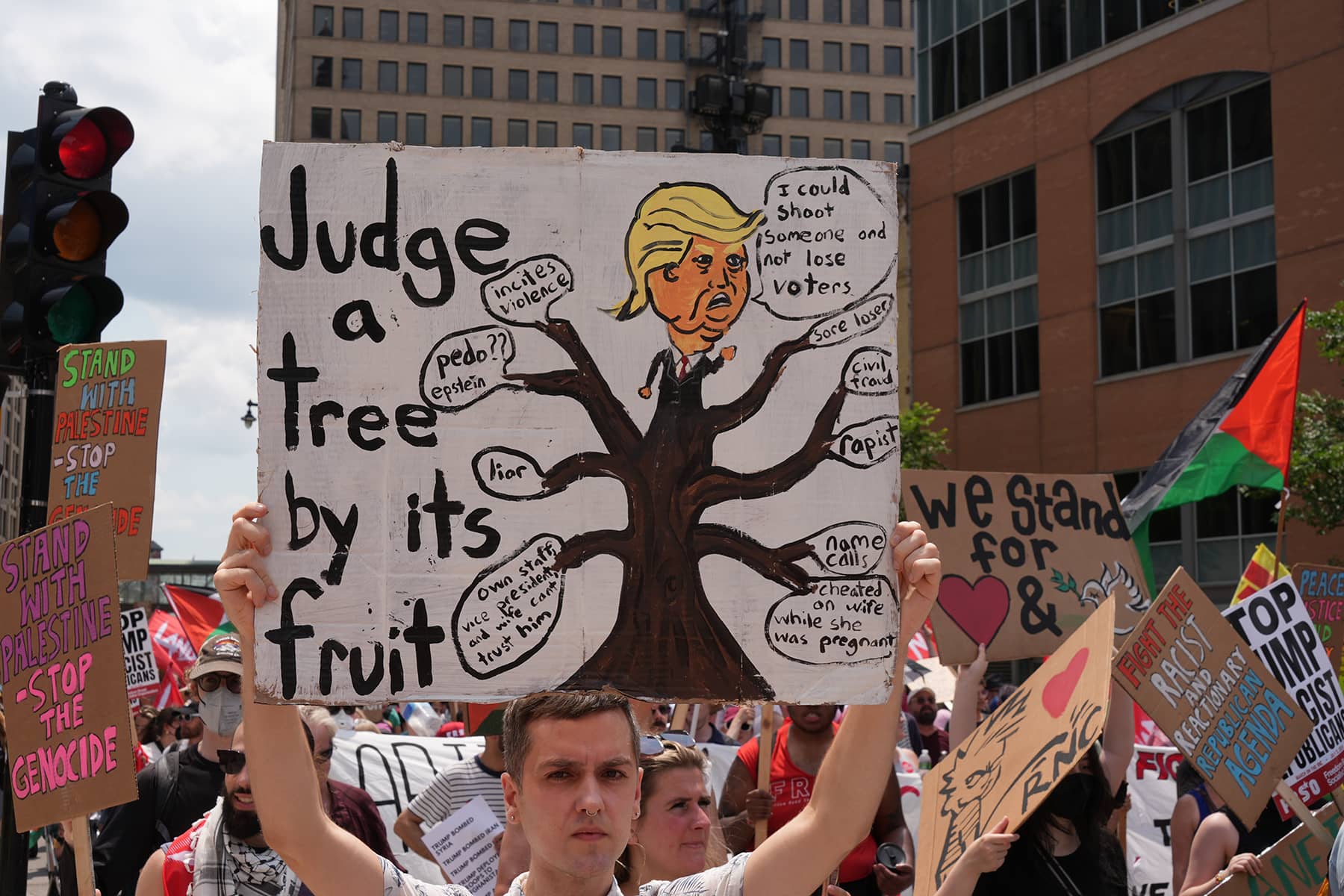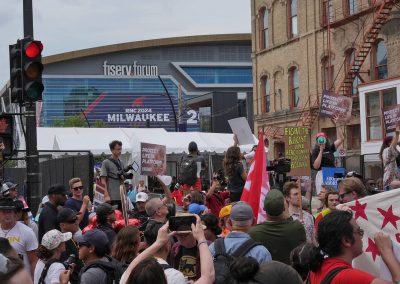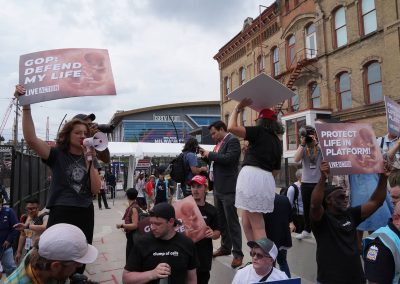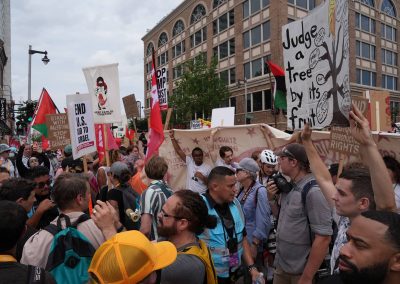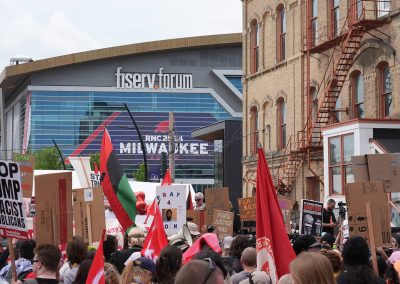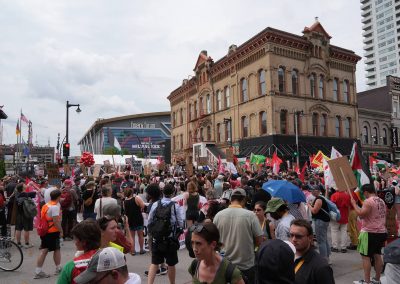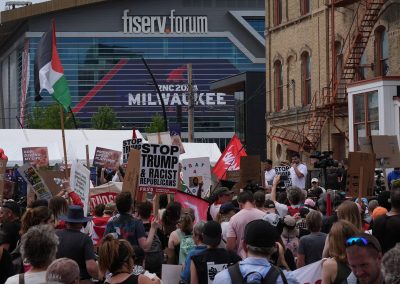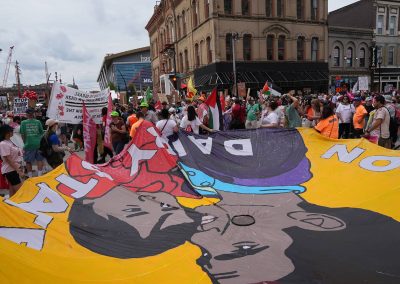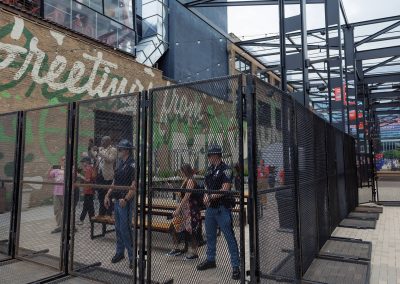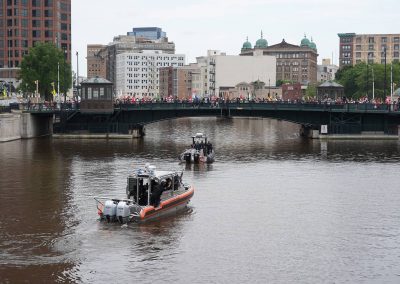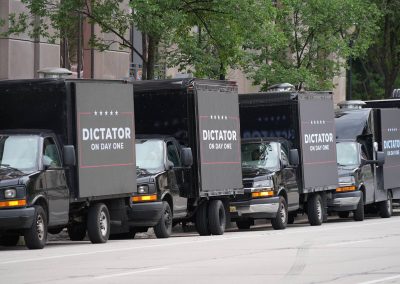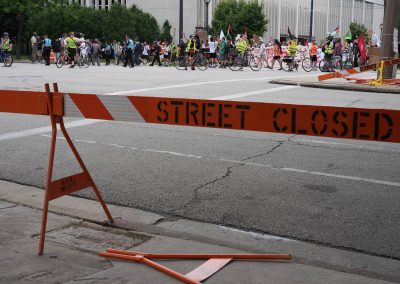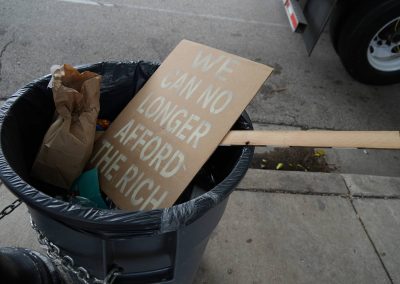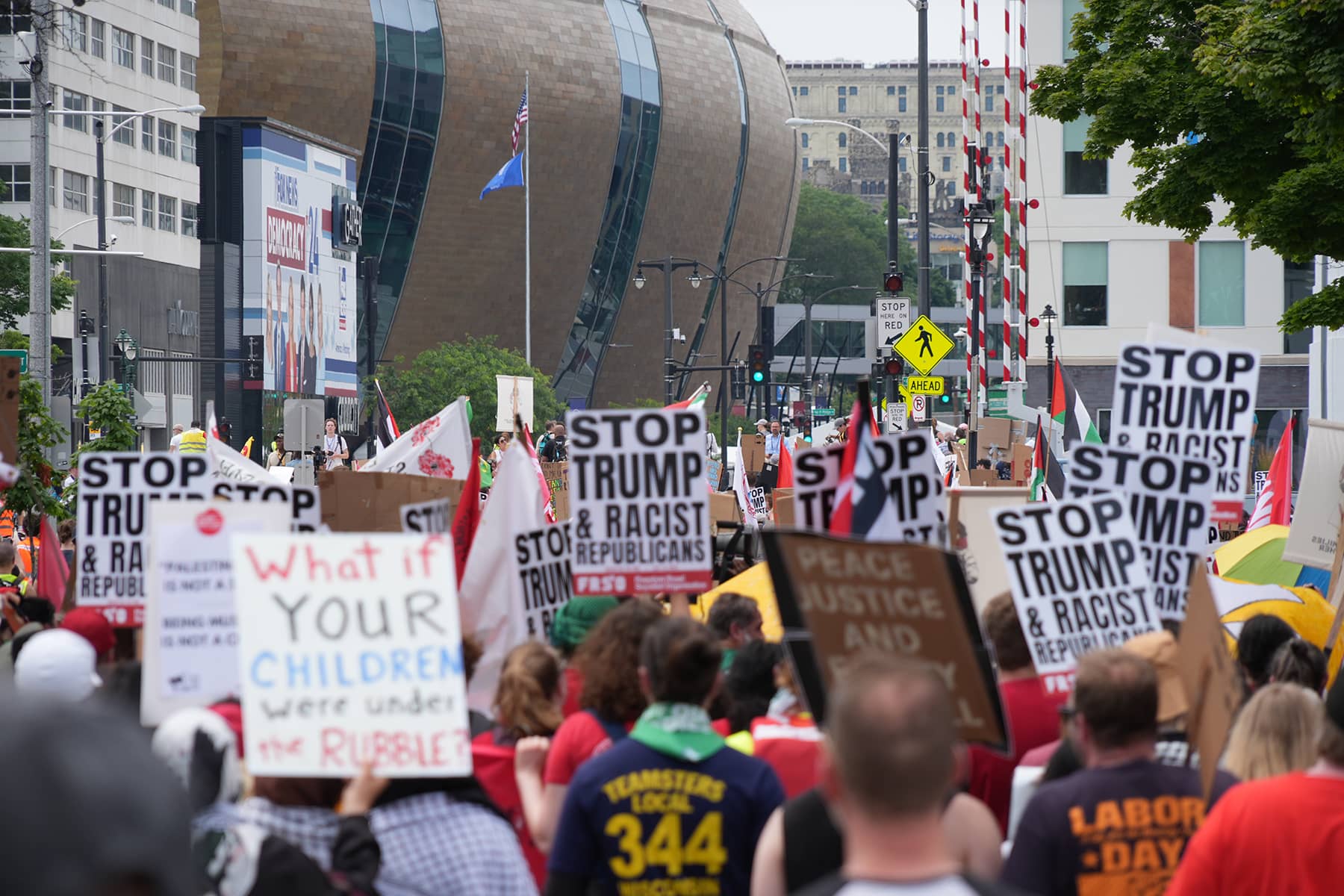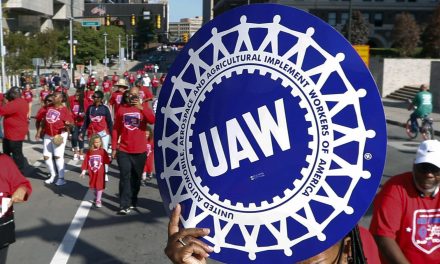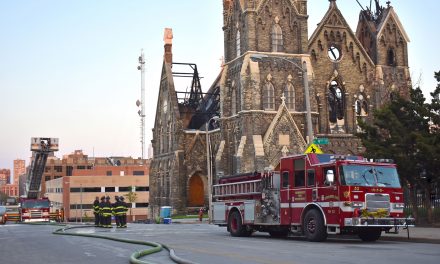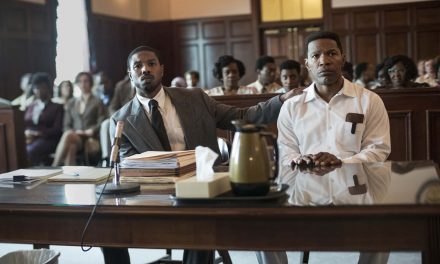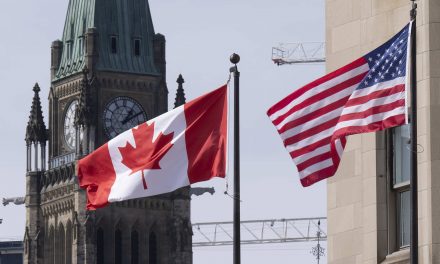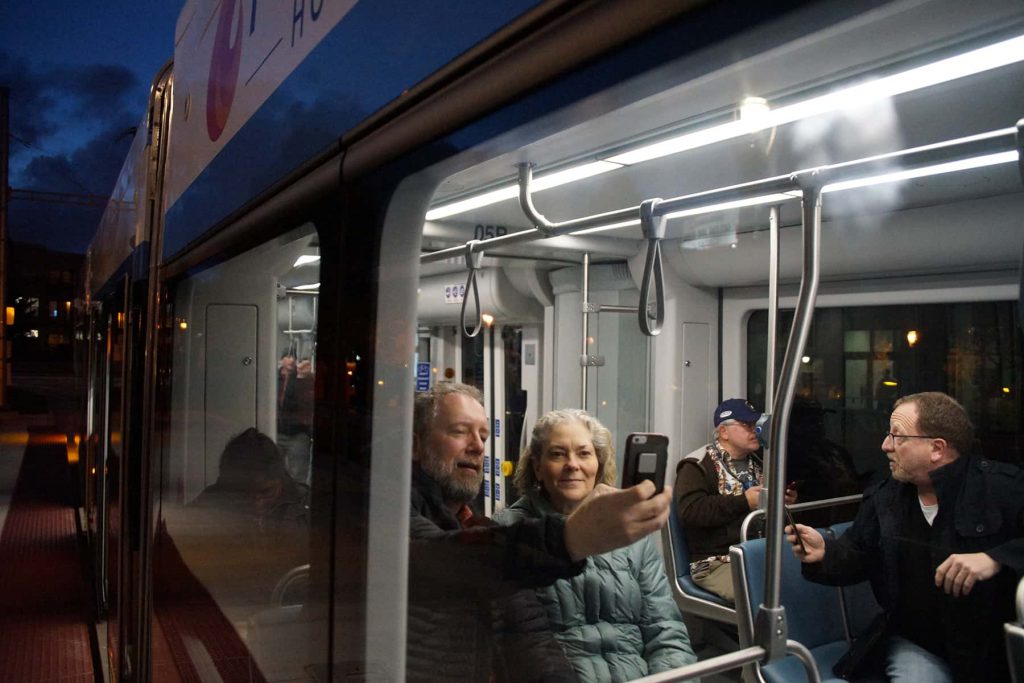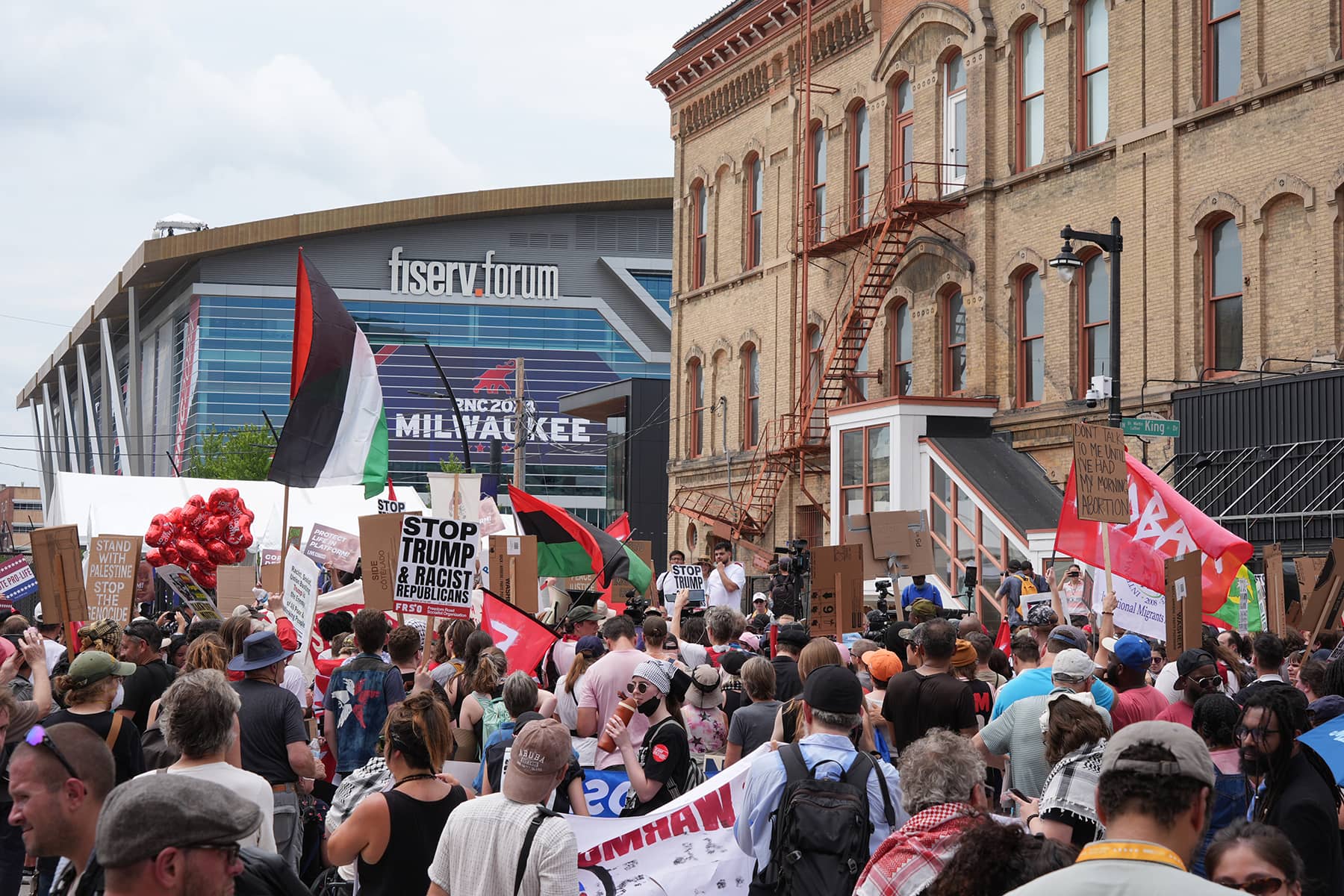
Hundreds of demonstrators converged on downtown Milwaukee to protest around the Republican National Convention on July 15, saying the assassination attempt on former President Donald Trump had no affect on their long-standing plans to rally outside the site.
A wide range of organizations and activists gathered in a downtown park outside the Fiserv Forum’s security perimeter to listen to speakers ahead of a street march coordinated by The Coalition to March on the RNC. The coalition, comprised largely of local groups, supports abortion and immigrant rights and is pressing to end the war in Gaza.
The atmosphere was festive, with music playing over loudspeakers, a man strumming a guitar, and vendors selling T-shirts and buttons supporting both Republicans and Democrats.
One protester wore an orange prison jumpsuit with a giant Trump cutout for a face. Activists carried signs that read, “Stand with Palestine,” “We Can No Longer Afford the Rich,” and “Defend and Expand Immigrant Rights.”
At one point a group of demonstrators got in an argument with counter-protesters who denounced LGBTQ+ rights, Muslims, Black Lives Matter, and women.
Counter-protester Rich Penkoski of Stillwater, Oklahoma, bellowed through a bullhorn that women should go home and make sandwiches for their husbands, along with ultranationalist Christian rhetoric. The demonstrators eventually walked away from the counter-protesters as police looked on.
The demonstrators set off on the family-friendly protest march around the arena’s security perimeter in temperatures approaching 90 degrees Fahrenheit, chanting “Hey-hey, ho-ho, Republicans have got to go” and “This is what democracy looks like.” Many carried Palestinian flags.
Marchers passed within a block of Fiserv Forum on the edge of the arena’s security zone before returning to the downtown park where they began. The Milwaukee Police Department estimated the crowd at between 700 and 800 people and said no one was arrested.
The Philadelphia-based group Poor People’s Army, which advocates for economic justice, marched later in the afternoon. Two dozen protesters gathered at Milwaukee Zeidler Union Square about a mile from Fiserv Forum to prepare for the march, jotting slogans on signs decrying corporate greed, mass incarceration, the war in Gaza, and other issues as Pete Seeger’s “Which Side Are You On?” played on a speaker.
Perennial Green Party presidential candidate Jill Stein addressed the group, calling for less military spending and larger investments in public education, social housing, and health care. She did not mention the assassination attempt.
Cheri Honkala, 60, said she traveled to Milwaukee from one of the poorest districts in Pennsylvania to “send a strong message to all politicians” that people living below the poverty line “are not surviving.”
Honkala said she was nervous after the attempted assassination of Trump about potential encounters with law enforcement officers and counter-protesters while she marched with the Poor People’s Army. But she said she was not deterred.
“The climate is definitely a scary one,” she said, “but you know what’s scarier? Not saying anything.”
A gunman identified as Thomas Matthew Crooks fired a shot during a Trump rally in Butler, Pennsylvania, on June 13 evening that grazed Trump’s ear. A rally participant was killed and two more were critically wounded during the assault, prompting widespread calls to improve security and raising questions about Trump’s safety in Milwaukee, as well as that of other convention-goers.
U.S. Secret Service Director Kimberly Cheatle said on July 15 that the Secret Service and other law enforcement agencies have “reviewed and strengthened” the convention security plan and they will continuously adapt their operations as needed. She added that the Secret Service also has made changes to Trump’s security detail, but she did not elaborate.
A heavy police presence in the city was assured, with officers from multiple jurisdictions providing security. Pentagon officials said 1,700 National Guard troops, mostly from Minnesota, Wisconsin, and North Dakota, were on active duty at the convention as well. Milwaukee officials and federal authorities have repeatedly said their priority is safety and insist they’ve made free speech accommodations.
Many activists are using the experience in Milwaukee to prepare for the Democratic National Convention in Chicago next month. That event is expected to draw even more people, and Chicago police have been undergoing training on constitutional policing and preparing for the possibility of mass arrests.

